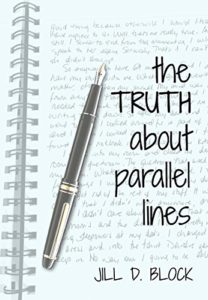 As an attorney, I write commercial real estate documents which are often 100+ pages long. Granted, I never start with a blank page, but each deal is different and each document has to address the nuances of the particular transaction. The good news is that the last quarter or so of every document tends to be standard stuff, boilerplate. Sure, you have to read through it to be sure that it works, but there is almost never anything deal-specific at the back of the document.
As an attorney, I write commercial real estate documents which are often 100+ pages long. Granted, I never start with a blank page, but each deal is different and each document has to address the nuances of the particular transaction. The good news is that the last quarter or so of every document tends to be standard stuff, boilerplate. Sure, you have to read through it to be sure that it works, but there is almost never anything deal-specific at the back of the document.
After 30 years of this, I am conditioned to easing up three-quarters of the way through. The hard part is behind me. The deadline is approaching. With the end in sight, I can put down the oars, sit back, and let the wind carry me home.
But writing fiction isn’t like that. The ending matters. Certainly as much as, if not more than, the rest of it. It’s hard to feel satisfied by a strong book or story with a disappointing ending. It’s like a gymnast executing a perfect balance beam routine and then falling on her ass on the dismount. My struggle.
I wrote a short story in December called What I Did on My Summer Vacation. I was pleased with it, and I shared it with my posse of early readers. The verdict? The story was great, but the ending wasn’t right. The protagonist’s actions in the final scene didn’t fit the character we’d come to know. It didn’t work. It was inconsistent, too abrupt, unexpected, and not in a good way. This actually didn’t come as a surprise to me – I knew that I had rushed to finish – but it was disappointing. It was the only ending I had.
I put the story aside for a week, and in that time I managed to shake the feeling that this was proof that I am a fraud who had finally been found out. Then I rewrote the ending. And then I changed it. Then I rewrote it again. And then I slowed it down. Then I went back and fixed it. And then it was done. (Big smile, salute the judges.)
I haven’t yet found a home for What I Did on My Summer Vacation, but when I do, you’ll be the first to know.




